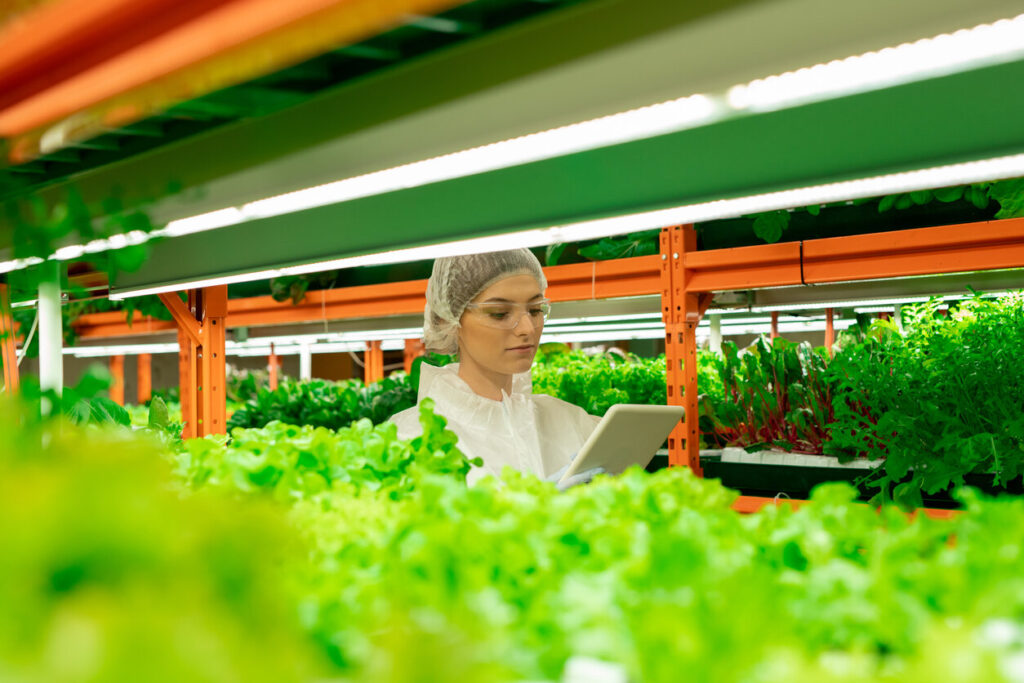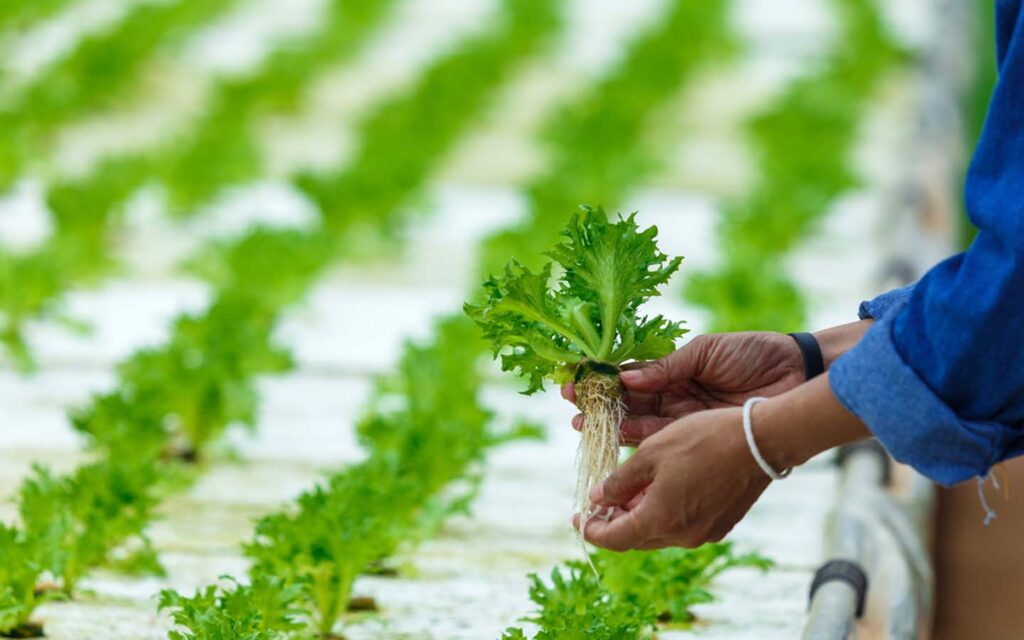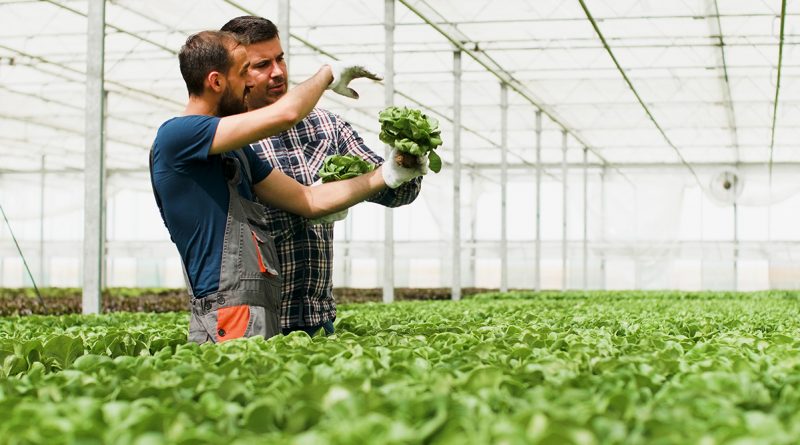All You Need To Know About Hydroponic Farming
Farming has always been the same over centuries. Some technology developments have increased production. However, soil-based farming still relies heavily on traditional processes. It has never been different from planting seeds, watering and caring for food, harvesting, and predicting the weather. But, to provide better, quicker, and more inexpensive results, farmers must find fresh approaches to meet the expanding worldwide demand.
This is where hydroponic growth is sweeping the globe.
What is hydroponic farming?
It is a method of soil-less plant cultivation. In this method, the roots of the plants are submerged in a specially mixed nutritional solution. Moreover, you’ll have to cultivate them in a controlled environment. You can grow wholesome, abundant, and organic foods all year long using hydroponic farming. Moreover, since the systems are properly designed, they are inexpensive to set up in small places.
While both farming methods are prevalent, there are several significant distinctions that make hydroponics a lot more effective approach to raising your greens. So, for plants that are in high demand on the market, you might pick the ones that are easiest to grow. Whatever you pick, all you need to start is a basic hydroponic set. Besides that, you need the right supplier like Kushy.com.au. It will make growing a plentiful crop easier for you that you can enjoy all year.
Differences between traditional framing and hydroponic farming
Here are some significant distinctions between soil gardening and hydroponics:
#1. Extra bountiful produce
The fact that hydroponics produces nutrient-rich crops in greater quantities is one of its main advantages. Hydroponic farming allows you to grow multiple crops in a single year. Meanwhile, soil-based farming does not allow for this. As a result, hydroponics doesn’t rely on the natural environment. Moreover, it is not affected by weather as it recreates the optimal atmosphere for plants to thrive in. In traditional farming, you must wait for the correct season or weather to grow the crops. On the other hand, in hydroponic farming, the controlled atmosphere enables farmers to grow various types of crops throughout the year.
Additionally, the roots immediately receive the nutrients. It results in a much better crop free from pest attacks. Also, the crops in better condition grow faster, taste better and last longer.
#2. Requires little space
Hydroponics uses very little space to cultivate a significant amount of product. This is yet another important advantage. This is another key advantage of hydroponic farming. Also, this is particularly true for vertical hydroponic gardening, which makes excellent use of available space. Even greenhouse systems benefit greatly from space management from hydroponics. The roots can develop well in a limited area and don’t need to spread out much to acquire nutrition. Additionally, you can plant more saplings in a smaller space, producing more food.
#3. Save water

In hydroponic systems, nutrient-rich water is used to grow plants. This water is constantly cycled from the reservoir to the roots and back into the reservoir. The highly water-efficient mechanism allows plants to absorb the water they require and release the remaining water back into the system. Contrarily, soil-based farming uses a lot of water. Above all, much of this water evaporates into the atmosphere rather than being absorbed by the plants. Thus, it wastes water in significant quantities. According to a recent WHO report, by 2025, half of the world’s population would be living in water-stressed areas. This is due to the fact that the supply of drinking water is rapidly diminishing. This global scenario and the rising demand for food will make traditional irrigation methods obsolete. Thus, in the future, hydroponic systems can prove to be the alternative.
#4. Chemical-free, organic crops
Growing hydroponically avoids the use of pesticides and other chemicals. On the other hand, these are frequently used in traditional farming to increase the yield. Since in hydroponic farming plants grow in a controlled atmosphere, they are not subject to pest infestations or other insect growth. Furthermore, nutrition delivery to the roots directly results in a crop that is far healthier than one produced through soil-based farming. Less vulnerability to weed and pest infestations are effects of better health. While pest problems in hydroponic systems are periodic, they are widespread and simple to manage.
#5. Nutrient control

Hydroponic farming enables you to provide each plant with the specific nutrients it needs to thrive to its full potential. So, you can precisely mix and customize nutrient solutions based on the needs of the crops you are cultivating. This will guarantee that each crop grows healthily and without requiring you to add chemicals to promote it.
#6. Growing indoors – free from weather effects
You can grow plants indoors with this method. So, you won’t need large open spaces to set up a hydroponic system. This is one of the special characteristics of hydroponic farming. You can carry out this activity within your room, on your balcony, or even in your backyard. The technique is neater and simpler to maintain because there is no soil involved. Also, since you can use different hydroponic supplies to control the temperature, light, oxygen level, humidity, and airflow and give the plants the ideal atmosphere, this provides you the flexibility to produce your plants all year long.
However, with field farming, you can only raise seasonal crops and must rely on the weather. Furthermore, you have no control over the temperature. So, any unexpected shift in the climate might potentially wipe out all your crops.
#7. Requires less physical work

Even if modern technology allows farmers to handle the majority of the job with machines, traditional farming involves a lot of manual labor. So, you still need to get your hands dirty in the soil. However, hydroponic systems give you independence from manual labor. You can position them at a convenient height so you won’t have to stoop over for hours to tend to your plants. Moreover, planting, transplanting, and harvesting are all made much simpler by the ergonomic designs of hydroponic systems, which you can create in your comfort.
Final word
Hydroponic gardening has transformed the way you cultivate your greens. It is not only more physically easygoing but also more productive. In contrast to its conventional equivalent, hydroponics has a lot fewer restrictions. Moreover, it gives you a lot more flexibility in terms of the crops you may grow.




